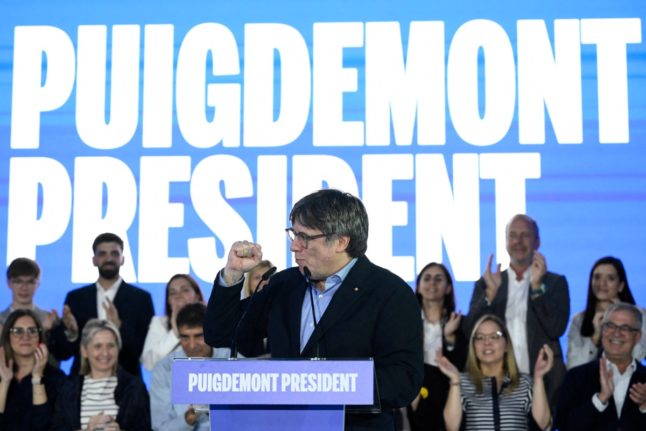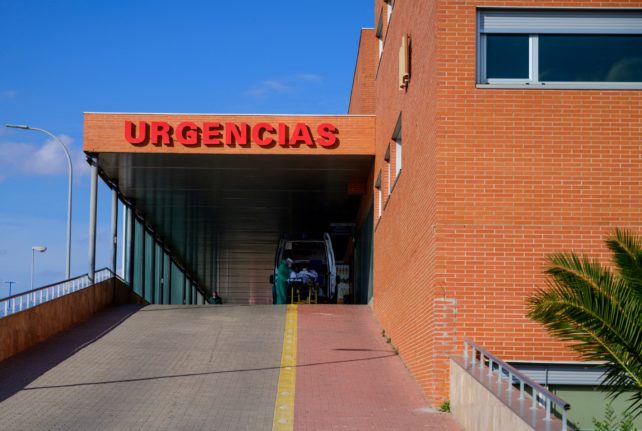It is here that Carles Puigdemont, the self-exiled Catalan separatist leader, has set up his campaign headquarters ahead of Sunday’s elections in the northeastern Spanish region of Catalonia, which lies just 30 kilometres (18 miles) across the border.
It was nearly midday and several thousand activists were waiting to get into the venue to see the 61-year-old former Catalan leader, who led the botched 2017 bid for Catalan independence from Spain before fleeing the country to avoid prosecution.
He lived for several years in Belgium but relocated last month to the southeastern French region of Pyrenees-Orientales, where Catalan culture and language is widespread and which separatists see as the northern part of their homeland.
Unable to enter Spain, where he is still subject to an arrest warrant, Puigdemont, who heads the hardline separatist JxCat party, is campaigning in southern France ahead of the May 12th regional elections.
READ ALSO: Why regional elections in Catalonia matter to Spain’s future
His rallies are drawing busloads of supporters, who are ferried across the border in coaches plastered with posters of Puigdemont’s face and slogans like “Catalonia needs independence!” on a trip that takes at least two and a half hours.
In the carpark outside the venue, several buses were waiting, as nearby loudspeakers vibrated with festive Catalan music that is punctuated by upbeat messages from the organisers.
“It’s quite sad. The president should be allowed to go where he needs to go, to Catalonia, which is why it’s very important that we’re here,” explained Angels Lores, a 58-year-old teacher who refers to Puigdemont as if he were still regional leader.
It is the third time Puigdemont has run in the regional Catalan elections since fleeing Spain in October 2017.
But this self-imposed exile could soon be over thanks to an amnesty law.
The bill was passed by the left-wing government of Prime Minister Pedro Sánchez in exchange for support from the Catalan separatist parties in parliament that enabled him to obtain a new four-year term in office.
The draft law is expected to receive its final green light by the end of May, heralding Puigdemont’s triumphant return home.
‘A new relevance’
“These are important elections because after all this time he’s been in exile, Puigdemont’s possible return has given them a new relevance,” said Arnau Olle, a 29-year-old IT specialist from a town near Barcelona.
A few streets away, the residents of Argelès-sur-Mer did not appear to be very excited by what may be at stake in the Catalan elections.
In the market, Alain Saussier, 72, said he’d seen “a few buses go by” but not much else.
Outside a nearby bakery, 71-year-old Muriel Creel said she knew Puigdemont was in town but admitted she has no interest in his ideas.
“Spain is one country, like France, and it must stay like that.
“We need regional traditions. That’s fine. But the country must stay united,” she told AFP.
After the rally wrapped up with the traditional cheer of “Long live free Catalonia!”, Yolanda Gómez, a 60-year-old housewife from Barcelona, emerged smiling.
Despite polls pointing to a victory by the Catalan branch of Sánchez’s Socialist party, Puigdemont was “excited and enthusiastic”, she said.
And when he finally returned to Spain victorious, they would hold “a party”, she said.
Her sister Sonia chipped in: “Like when Barcelona wins the Champions League!”



 Please whitelist us to continue reading.
Please whitelist us to continue reading.
Member comments